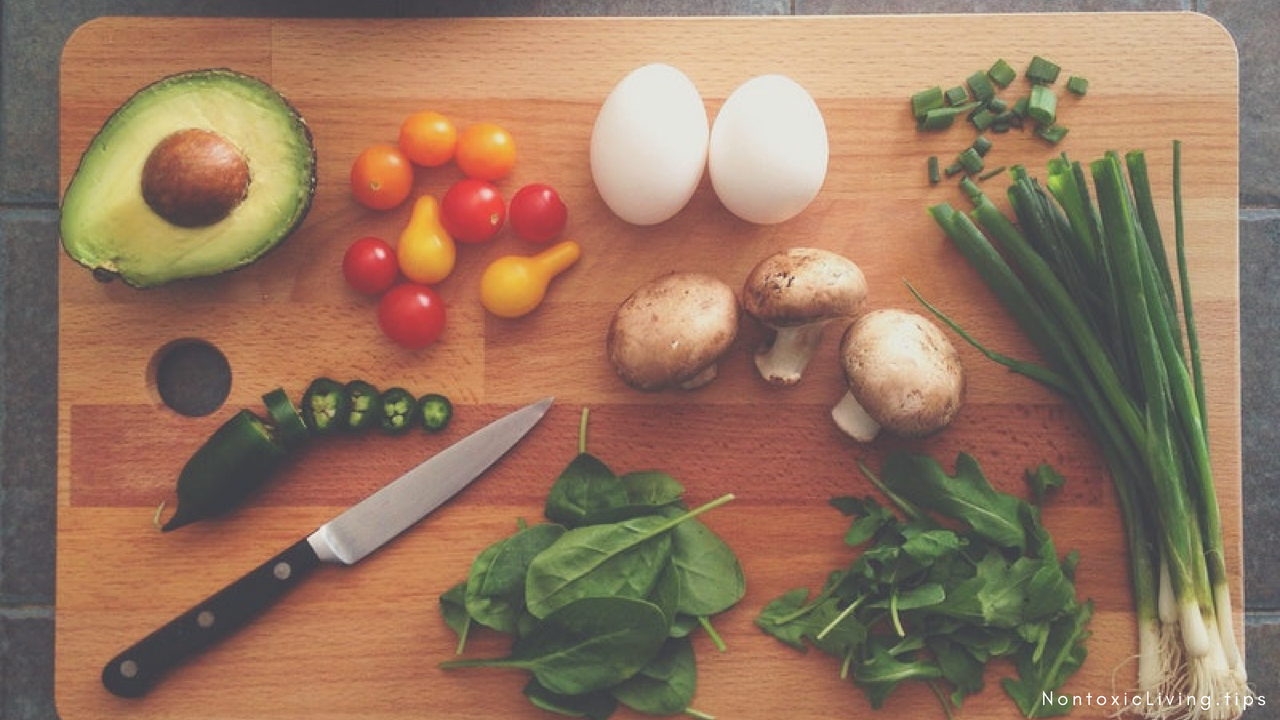
How to Choose a Nontoxic Cutting Board
Aug 14, 2018by editorial team and Sophia Ruan Gushée
Chemicals found in standard cutting boards may off-gass volatile organic compounds (VOCs) into the air and leach into food and beverages. To minimze these exposures, choose a nontoxic cutting board.
Components of a nontoxic cutting board
Nontoxic cutting boards are made of solid hardwood, nontoxic glues, and nontoxic finishes. Some cutting boards come with a conditioner that can be toxic so look for one that is conditioned with a nontoxic conditioner. You can also find an unfinished, unconditioned wood cutting board, and condition it yourself.
How cutting boards may affect your health
Standard cutting boards, and those made of plastic, can contain benzene, BPA, chlorine, phthalates, triclosan, and other harmful chemicals that may contribute to endocrine disruption, various types of cancer, damage to chromosomes, birth defects, obesity, developmental abnormalities, allergies, asthma, thyroid disruption, liver damage, and harm to the immune system and human sense organs.
While the exposures from a standard cutting board alone may not cause meaningful harm, the accumulation from our overall exposures can contribute to a tipping point. So avoid exposures from things that you can avoid and that don't bring you joy. Choosing a nontoxic cutting board is often a painless tweak.
How to choose a nontoxic cutting board.
When choosing a nontoxic cutting board there are several factors to take into consideration, such as the material they’re made of and the types of finishes and wood conditioners that have been applied. Consider following these guidelines:
- Avoid products labeled “antibacterial” or “fight odors.” These products likely contain triclosan.
- Look for solid wood boards. Opt for cutting boards made of hardwood.
- Choose nontoxic glues. Many cutting boards are composed of wood strips glued together. Ask the manufacturer if nontoxic glues have been used.
- Avoid oils made of petroleum distillates. Examples include petroleum, petroleum jelly, petrolatum, mineral oil, liquid paraffin, Stoddard solvent, light liquid paraffin, naphtha, mineral spirits, kerosene, tar, solvent, organic solvents, petroleum distillate fractions, white spirits, aliphatic petroleum naphtha, petroleum naphtha, and rubber solvent.
- Look for natural oils or finishes. Finishes such as beeswax and olive oil are among the safest.
The cutting boards below appear to be nontoxic: 100% solid olive wood, conditioned with olive oil, according to information on their Amazon page (you can click on the image for more details).
Summary
Reduce your toxic exposures by choosing a nontoxic cutting board: avoid products labeled “antibacterial” or “fight odors,” opt for solid hardwood boards made with nontoxic glues, and choose oils and finishes that are made with natural ingredients (such as beeswax instead of petroleum distillate finishes).




